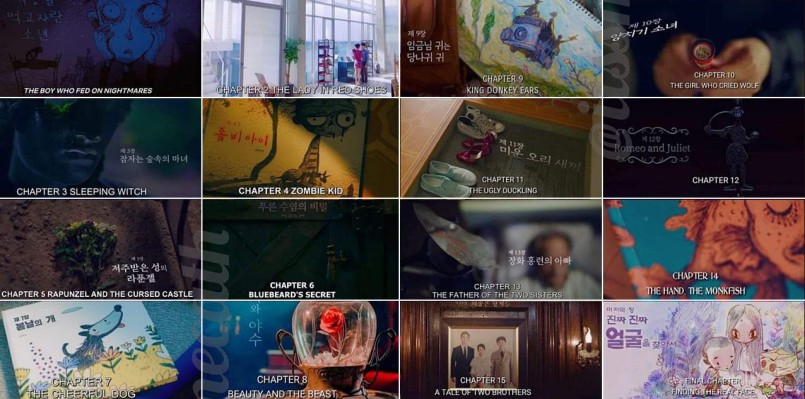
The whole drama itself can be linked to fairytale books that almost everyone is familiar about and the episodes of "It's Okay to Not Be Okay" are called chapters.
And here's the amazing part, each chapter has been named after famous fairytale, in which five of it was written by the drama's fictional leading lady Ko Mun Yeong, who is a renowned children's book author. The chapter which she has penned includes the first episode, "The Boy Who Fed on Nightmares," the fourth episode "Zombie Kid," the seventh episode "The Cheerful Dog," the 13th episode "The Hand, The Monkfish," and the final episode "Finding the Real Face."
Moving forward, the rest are named after fairytales that we all know or are familiar with. We jotted down each chapter in "It's Okay Not To Be Okay" that were cleverly linked into real fairytales, fables, and folklores.
(Warning: If you have not watched this drama yet, please look away since there are spoilers ahead!)
"The Lady in Red Shoes" (2nd chapter)
This episode was named after famous writer Hans Christian Andersen's "The Red Shoes," which was originally published in 1845. The story is about a woman who was obsessed with a pair of red shoes that she wore it everywhere.
"Sleeping Witch" (3rd chapter)

The drama's third episode is actually linked to the well-known classic fairytale "Sleeping Beauty." This fairytale was first published in 1634 by Giambattista Basile. This fairytale tells the story of a beautiful princess who was cursed by a wicked fair to sleep for hundreds of years.
"Rapunzel and the Cursed Castle" (5th chapter)
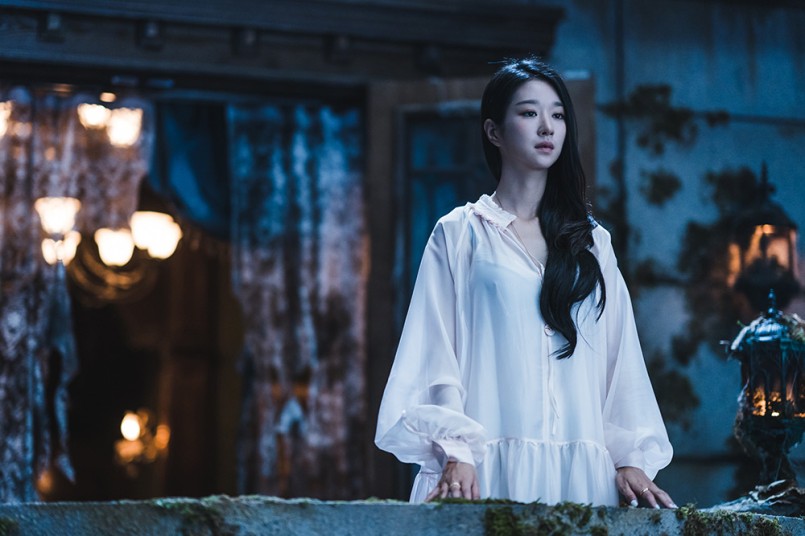
Yet another fairytale which is loved by many the classic, "Rapunzel," this story was published in 1812 by the Brothers Grimm. It's about a princess with very long golden hair who was unfortunately trapped in a tower.
"Bluebeard's Secret" (6th Chapter)
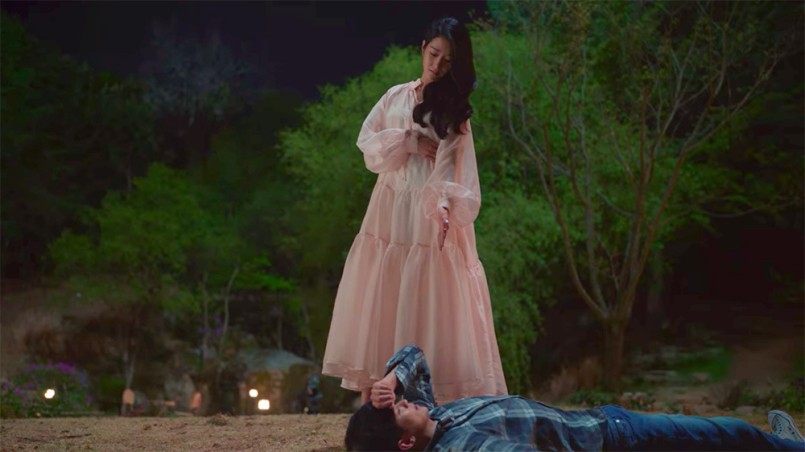
The story of "Bluebeard" came from a French folktale in which its most famous version was penned by Charles Perrault in 1697. And as the drama told it, it features the story of a rich man who kills one spouse after another.
"Beauty and the Beast" (8th Chapter)
This fairytale clearly doesn't need any introduction at all since it is another classic story that we have read, heard and watched time and again. It is about a cursed prince that was made to look like a beast and could only go back to his human form is someone would love him unconditionally as a beast.
"King Donkey Ears" (9th Chapter)
"The King with Donkey Ears" is a well-known Korean children's fable but has various versions worldwide. Basically, the story is about a king who has a deep hidden secret, which is his large donkey ears, and the only one who knows about this secret is his hairdresser. However, he is completely forbidden to tell this secret until one day the hairdresser can't contain it anymore and shouted twice at the top of his lungs, revealing the secret, "The king has donkey ears!"
"The Girl Who Cried Wolf" (10th Chapter)
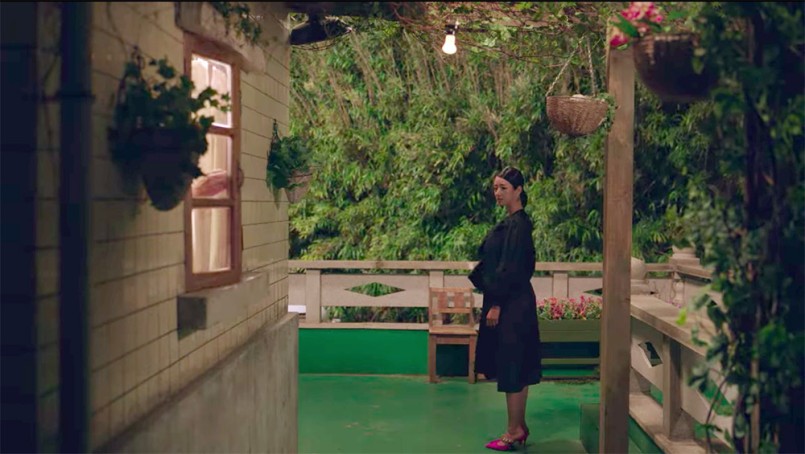
"The Boy Who Cried Wolf" is a well-known fable that tells the story about the shepherd who keeps on fooling his neighbors telling a lie that a wolf is attacking his town's flock. Then one day, unexpectedly, there was a real actual wolf that showed up and the boy cried for help once again but nobody believed him anymore.
"The Ugly Duckling" (11th Chapter)

"The Ugly Duckling" is another fairytale penned by author Hans Christian Andersen. This story is about accepting oneself even if you are completely different and unique compared to others.
"Romeo and Juliet" (12th Chapter)

"Romeo and Juliet" is one of the most famous love stories everyone is familiar with, which is penned by William Shakespeare. It is about a forbidden love that ended in tragedy but somehow inspired their feuding families to make ameds.
"The Father of the Two Sisters" (13th Chapter)
"The Father of the Two Sisters" is one of the highest grossing Korean horror films and is based on a Joseon Dynasty folktale, "Janghwa Hongryeon Jeon." It features the story of two sisters who both died due to their stepmother's abuse.
"A Tale of Two Brothers" (15th Chapter)
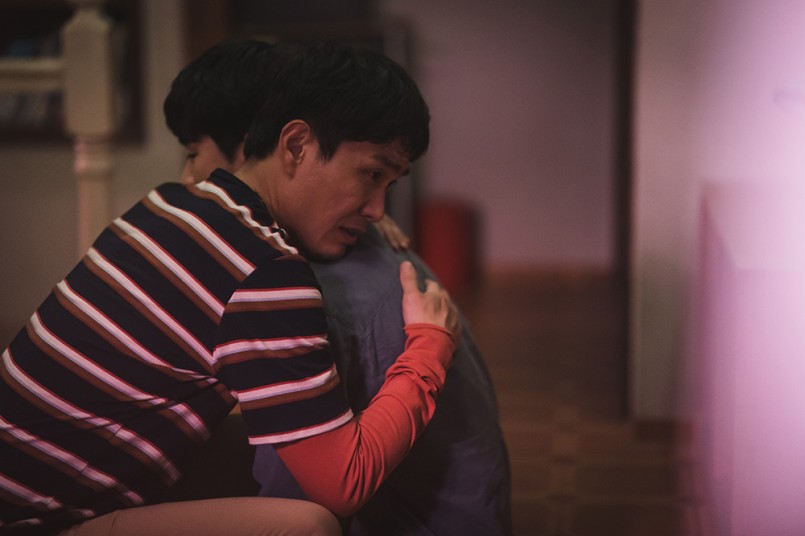
"A Tale of Two Brothers" has one of the most inspiring stories. It tells the story of two brothers who would sneak in and steal a sack of rice for each other's household. The story will inspire us on how a family should look after one another. And as the series has already concluded, the takeaway is clearly shown in Episode 15.
Can you connect or relate each episode of "It's Okay Not to Be Okay" to the story of these fairytales? If so, which one is your favorite "It's Okay Not To Be Okay" chapter?












